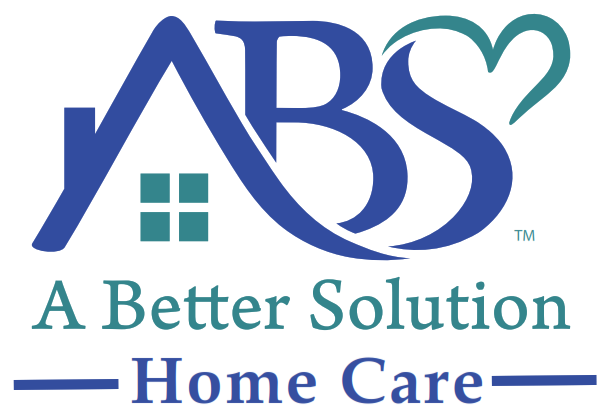
Top 10 Signs Your Aging Parent Needs Help in an Assisted Living Facility
05-23-2025
As parents grow older, their needs often change in subtle, and sometimes not-so-subtle, ways. While many older adults are capable of managing their lives independently, there often comes a time when additional support becomes essential for their safety, health, and emotional well-being. Recognizing that moment can be challenging for families, especially when trying to strike the right balance between independence and care.
Moving into an assisted living facility can offer much-needed structure, safety, and community. However, some individuals in these settings may still require personalized care, whether due to physical limitations, memory issues, or simply the need for more consistent support than facility staff alone can provide.
What Is an Assisted Living Facility?
A common question many families face is: what is an assisted living facility? It’s a residential option for seniors who need help with daily living activities like bathing, dressing, eating, or taking medications, but do not need the level of care provided by a nursing home. These facilities offer private or semi-private living arrangements, social activities, and basic medical oversight.
However, despite the structured support offered, assisted living facilities may not always meet every personal or emotional need. This is where the role of supplemental caregivers becomes essential, ensuring residents receive individualized attention that complements the facility’s services.
10 Signs Your Parent May Need Additional Help in an Assisted Living Facility
1. Difficulty With Daily Hygiene and Dressing
Struggling with grooming or appearance is a red flag. Even with support available in senior citizens assisted living facilities, some older adults may feel embarrassed asking for help or may not receive timely assistance due to staffing limitations. If your parent’s hygiene noticeably declines, they may need dedicated personal care to maintain dignity and health.
2. Medication Errors or Missed Doses
Mistakes in medication can have serious health consequences. Most assisted living facilities offer some medication oversight, but it may not be comprehensive. If you notice pill bottles piling up or changes in mood or cognition, a private caregiver can offer personalized medication reminders and monitoring.
3. Increased Isolation or Withdrawal
Even in group settings, seniors can feel lonely. A once-social parent may stop participating in group activities. With a personal caregiver’s encouragement, your loved one can better engage in activities for elderly people in care homes, from crafts to walking clubs, enriching their emotional wellbeing.
4. Poor Nutrition or Skipped Meals
Nutritional decline is easy to miss but highly dangerous. Some seniors refuse to eat unfamiliar food or feel overwhelmed during meals. Personal caregivers ensure meals are eaten regularly and that any dietary concerns are addressed, even within assisted living facilities that provide dining services.
5. Decline in Cleanliness of Personal Space
A messy or unsafe living area may mean they need more help. If your parent’s room becomes increasingly cluttered, it might reflect decreased mobility or cognitive changes. A caregiver can assist with light tidying, organization, and monitoring for fall risks or sanitation issues.
6. Repeated Falls or Mobility Struggles
Falls are a major cause of injury for older adults. If your parent has experienced falls, or you notice bruising or fear of movement, additional support is needed. One-on-one assistance with transfers, walking, or exercise can reduce fall risk, even in the safest of assisted living facilities.
7. Confusion With Routine or Appointments
Disorientation and memory lapses impact daily functioning. Missing appointments, losing items, or forgetting mealtimes can indicate cognitive changes. Caregivers can provide essential routine reinforcement, helping residents remain oriented and structured.
8. Refusal of Help From Facility Staff
Some seniors prefer familiar, consistent caregivers. If your parent resists help from rotating facility staff, a consistent personal caregiver may ease their discomfort. Building trust helps ensure that essential needs, like bathing or toileting, aren’t avoided.
9. Family Caregiver Burnout
When families feel stretched thin, it affects the seniors too. Even with a parent in an assisted living facility, families often continue providing support. If this becomes unsustainable, adding a caregiver through a trusted provider can relieve that pressure and ensure consistent care.
10. Health Recommendations for Increased Support
Healthcare providers may spot what family can’t. If a doctor, nurse, or therapist recommends additional help, it’s wise to act quickly. A caregiver can offer personalized attention without the need for relocating your loved one again, especially important when considering when to move parents to assisted living and how to make it sustainable.
Why Personalized Care Is Still Needed in Assisted Living Facilities
Facility Staff Are Shared Among Many Residents
While staff in assisted living facilities work hard, they’re responsible for multiple residents. This often results in brief interactions and delays in care.
Not All Residents Ask for Help
Some seniors feel ashamed, stubborn, or anxious about asking for help, especially with personal tasks. A one-on-one caregiver offers proactive, gentle support without waiting for the resident to request it.
Daily Needs Can Fluctuate
Health changes can happen quickly. Personalized caregivers adjust to your loved one’s needs in real-time, offering flexibility that facilities can’t always provide.
Companionship Is Just as Vital as Physical Care
Isolation can occur even in social settings. A personal caregiver helps ensure meaningful connection, encourages participation in activities for elderly people in care homes, and reduces depression or anxiety.
Families Need Better Peace of Mind
Even when living in a facility, families often worry about missed details. A dedicated caregiver offers that extra layer of security, communication, and attentiveness
What Are the Benefits of Senior Home Care Facilities With Supplemental Support?
When considering what are the benefits of senior home care facilities, it’s important to recognize the advantages of blending residential living with personalized care:
1. Enhanced Safety and Monitoring
Caregivers can help prevent falls, catch early signs of illness, and alert staff or families to urgent changes, a critical enhancement within assisted living facilities.
2. Individualized Care Plans
Unlike general facility routines, personal caregivers follow a plan tailored specifically to the resident, meeting their habits, preferences, and emotional needs.
3. Encouraged Participation in Activities
Seniors are more likely to take part in activities for elderly people in care homes when guided and supported by someone they trust.
4. Improved Hygiene and Nutrition
A caregiver ensures that hygiene routines are followed respectfully and meals are completed, reducing infection risks and malnutrition.
5. Emotional Support and Stability
Having a consistent companion relieves loneliness, improves mood, and can even slow cognitive decline.
6. Reduced Family Stress
Families benefit too, knowing that their loved one is truly being seen and supported, even inside a structured setting
How to Know When It's Time for Assisted Living
Deciding when to move parents to assisted living can be one of the most emotional and complex decisions for a family. It’s important to base the decision on clear, observable signs rather than assumptions or guilt. While every situation is different, there are common indicators that your loved one may need more structured, supportive care, with the option to add personalized services if needed.
Key signs it may be time to consider assisted living facilities:
- Frequent falls or mobility issues that make living alone unsafe.
- Poor hygiene or missed medications, even with reminders.
- Weight loss, malnutrition, or signs of dehydration.
- Unpaid bills or neglected household responsibilities, signaling cognitive decline.
- Wandering, confusion, or memory issues that pose safety risks.
- Withdrawal from friends, hobbies, or social interactions.
- Signs of depression, loneliness, or emotional instability.
- Increasing reliance on family members for daily tasks and transportation.
- Burnout or stress in the family caregiver, especially if it’s impacting their own health.
- Professional recommendations from doctors, nurses, or therapists to increase care support.
Beyond the move: Why personalized care might still be necessary
Even after the transition, a facility alone may not meet every need. Families often supplement with personalized care to provide:
- One-on-one attention for complex or fluctuating health needs.
- Emotional support and consistency from a familiar caregiver.
- Increased engagement in activities for elderly people in care homes.
Supporting Loved Ones Inside an Assisted Living Facility
Choosing an assisted living facility is a major step toward safety and structure, but personalized care often makes the greatest difference in a senior’s day-to-day experience. Recognizing the signs early, and providing the right level of support ensures your loved one receives the dignity, attention, and comfort they deserve.
Explore how personalized caregivers can enhance life inside assisted living. Contact A Better Solution Home Care to learn more about our facility support services.
